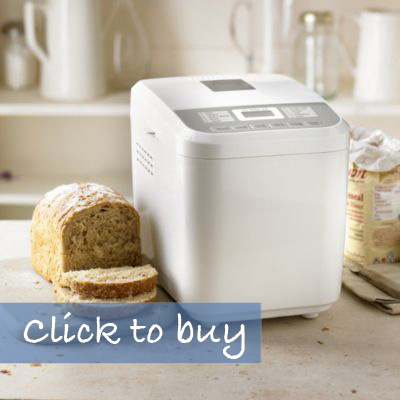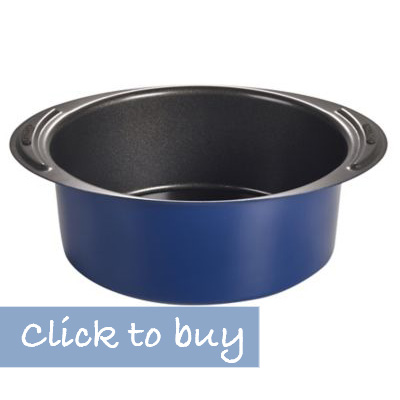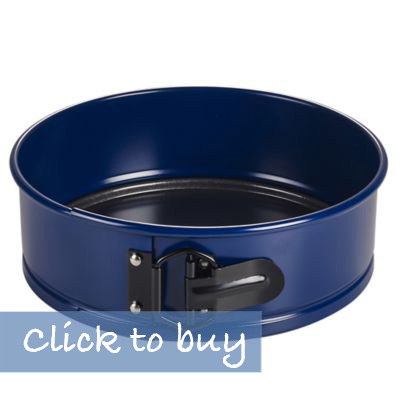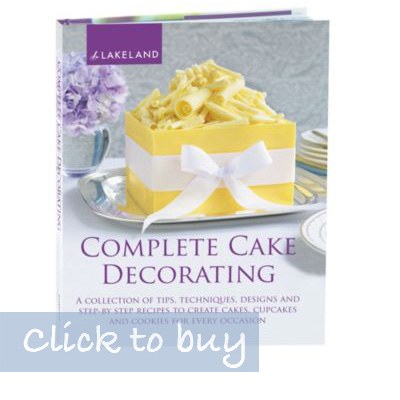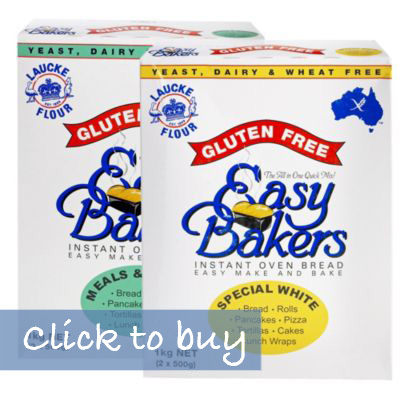The Benefits of Baking
“Baking Therapy”
By Gabriele Fantelli
Traditional occupational therapies have been known for years to relieve many symptoms of depression and anxiety. Physical activities will help keep our body healthy which in turn can help combat depression and anxiety through the production and release of various endorphins. Projection activities such as painting or writing are used to project and transfer negative feelings onto a canvas or a notebook and create something positive from them.
So what about baking?
Former Great British Bake-off winner John Whaite has been known to say that baking helps lift his depression, as it’s a way of channelling all the negative energy into creating something positive.
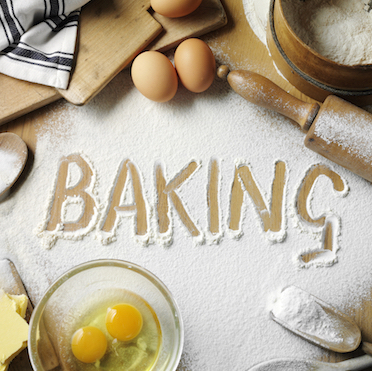
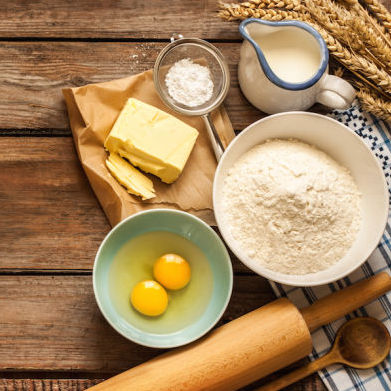
In recent years both mental health and culinary experts have come round to the idea that baking could very well be helpful in relieving the symptoms of anxiety and depression by combining the physical and projection aspects of the traditional occupational therapies. Kneading a batch of bread dough for 10/15 minutes will sure take away a lot of frustration and negative feeling, the weighing of the ingredients, the repetitive motions and the feeling of being in control could help keep calm and level up unruly anxiety feelings, decorating a cake, making beautiful artistic creations can mirror the feelings of projection people might experience when painting or writing.
And obviously let’s not forget that at the end we get to indulge in some great home bakes which would definitely put a smile on anyone’s face and share our creations with family and friends reclaiming those great positive feelings of nurturing and making someone else happy.
Getting into baking
So how easy is it to get baking? Is it really stress-free? Does Chef Gordon Ramsey or the people working for him look calm and at peace? I think, like anything else, baking can be as easy and stress-free as we want it to be.
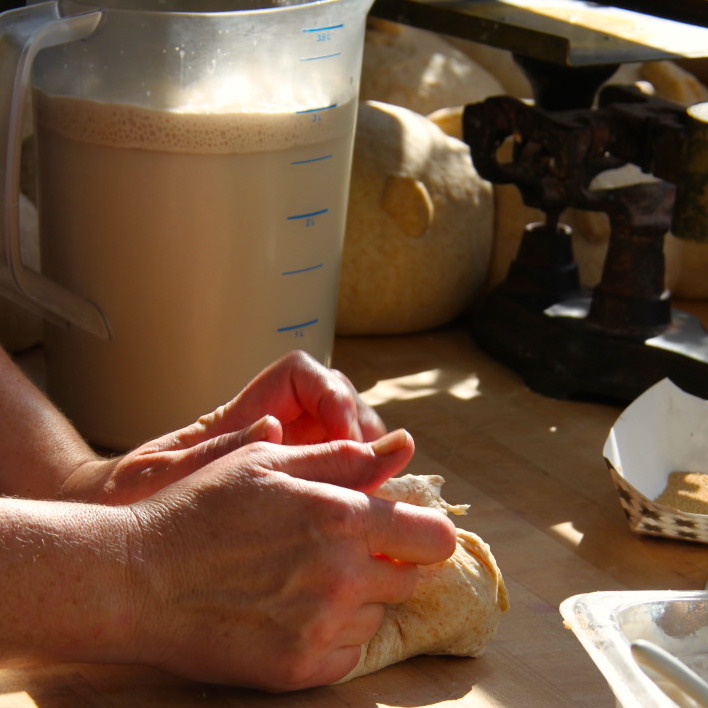
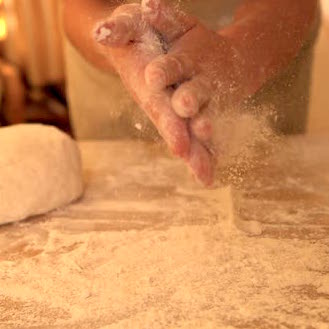
If a beginner and not sure, the temperamental nature of pastry and the “ought to be perfect chemical formulas” that we call recipes can be quite daunting and can defeat the whole purpose of the activity if they cause stress. Equally, a rigidly structured and well planned challenge, as hard as it may be, requires focus and non-defeatist attitude and it could be a way of channelling all the negative energy into the chosen “baking-quest”. The great news is there are recipes that are easy and flexible, others that are more challenging and exact – it is important that you set the pace and tone of your own activity.
As for almost everything, there’s help out there. Every spring we all catapult ourselves to the nearest and favourite garden centres and DIY stores to pack up our cars with everything we need to make our homes and gardens summer-ready, we listen to the helpful staff and usually successfully follow their suggestions and advice. Baking doesn’t have to be any different. Baking equipment is readily available almost everywhere, so much so that all major supermarkets even have their own range of cooking ware.
Specialist baking and cooking stores are also spread across the country; nationwide chain Lakeland could be the perfect starting point, not only they supply everything needed for baking and cooking, but also provide cooking books and helpful advice that only a specialist store can often offer
Nutrition and baking
Here at mental healthy we cover extensively the mental health benefits of certain foods and ingredients. Particular attention is given to the benefits of unrefined products such as sugar and flour. Home baking gives you the power to control what to include in a cake or bread, whether swapping white flour for wholemeal, butter and dairy for vegetable oils etc., making it healthier and sometimes more suitable for your physical and emotional needs. Please see our recipe below for Apple and Raisin Cake as a great easy place to start – with the added mental and physical health benefits!
You may also like to try our Alternative Christmas Cake
Hand versus Machine
How to get perfect bakes but keep the physical and therapeutic effects of baking
From a culinary point of view, mixing batters and bread dough with an electric mixer will give better results and in a shorter timeframe. However, in doing so, we give up the physical motions that help release stress and negative/excessive energy. We also loose the feel for the ingredients and their resistance and behaviour when manipulated which can be very therapeutic in itself.
We obviously all want good and tasty results in the kitchen, all the therapeutic effects of baking will instantly vanish if at the very end we don’t get a half decent product!
The key could be combining the two methods: in bread making for example try and use the mixer for the first 5 minutes until the dough is formed and the machine has worked it enough to give a good result at the end, then just turn the dough onto a clean surface and beat all the frustrations out of it for the next 5 minutes.
We can apply the same method when mixing cake batters, electric mixers are very useful especially when mixing eggs and sugar, after that we can use hand whisks and spoons to incorporate all the other ingredients.
Sometimes recipes will also include the type and size of cake tin you need to use and it’s preferable to follow these directions or, if you are using a different one, it’s worth to think about how the different size and material of the tin will affect the cake. For example a mixture that’s meant for a shallow tin will cook differently in a deep one and a thin and flimsy tin will allow the heat to reach the mixture too quickly allowing the base and sides of the cake to dry out and eventually burn, the below links take you to our recommended products we have been able to review during the research into this article.
The key is to get tins that are sturdy and made out of such materials that do not warp at higher temperatures and prolonged oven times, and with a heavy and solid base that should ensure an even distribution of the heat. A quick and easy test to recognise a good tin is the weight, sturdiness to the touch and usually the price, good tins are usually more expensive but they tend to last longer and give better results – please see reviews below.
Apple and raisin cake recipe
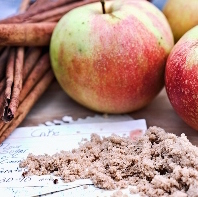
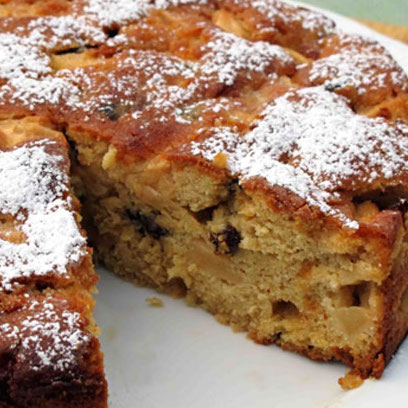
Now we have discussed the theory we can no put this into practice – the below recipe is one I wrote for Mental Healthy a few years ago, it is challenging yet flexible enough that a beginner can’t go far wrong - http://www.mentalhealthy.co.uk/lifestyle/recipes/apple-and-raisin-cake.html
The important thing in this recipe is the unrefined flour and sugar, while you could use white flour and caster sugar, the unrefined products we recommend really can make the difference with the stabilisation of your blood sugar levels, helping to keep anxiety attacks under control!
You will need:
Ingredients
200 gm. Self Raising Wholemeal Flour
100 gm. Demerara Sugar
100 gm. Butter (melted and cooled)
2 whole eggs
4 Tbsp. Milk
4 Apples (peeled, cored and chopped)
3 tsp. Ground Cinnamon
100 gm. raisins (soaked in orange juice for 15mins)
Method
Preheat the oven to 180/200 degrees C, Gas mark 5.
Grease and line a 6 inch round cake tin (can be lined with flour or baking paper).
In a bowl, whisk together the sugar, eggs and cinnamon until light and creamy.
Add the butter, milk and keep whisking until mixed together.
Sieve the flour and add it to the mixture, slowly folding it in with a metal spoon.
Fold in the apples and the raisins (drained).
Pour the mixture into the cake tin and bake in the middle of the preheated oven for 45/50 minutes.
(To check if the cake is cooked all the way through, try inserting a cocktail stick through the middle and if it comes out dry and clean, the cake should be ready).
Preparation: 15 minutes
Cooking time: 45/50 minutes
Difficulty: medium
What you will need – our reviews
Baking Tns
In the past few weeks we were able to try out the “Lakeland 18cm Loose-Based Round Deep Cake Tin” and the “Lakeland 23cm Spring-form Cake Tin”. They are quite heavy, sturdy and made from heavy duty carbon steel 1mm thick meaning they will sustain temperatures of up to 240 C. the “sure-grip” handles make them easy to handle and release the latch and the double layer of “Quantum 2 professional non-stick” should ensure stress-free cake release, which we can happily confirm happened in our case. We feel they are absolutely perfect and would definitely recommend them to any type of baker, from beginner to professional.
Silicone Muffin Baking Tray
We also had a chance to try the “Lakeland silicone 12 muffin pan”. We are not a fan of silicone bakeware! We don’t think they are as easy to use as the manufacturers lead us to believe which could be just down to each individual. Our major dislike about it though is that after a few dishwasher cycles, silicon bakeware seam to absorb the taste and smell of the washing liquids and transfer it onto the cakes. So if you opt for silicone, it would be advisable to wash them by hand with scent-free soaps. But, one very good feature about this particular muffin pan is that it has a metal edge that makes it stable and very easy and practical to handle, so we would definitely recommend it above the regular all silicone ones.
For brining the fun into baking we can recommend these very decorative and great for kids, Bucket and Spade Muffin Moulds.
Eco-Friendly Greaseproof Parchment Paper
Although most cake tins are non-stick we feel that line the tins is peace of mind worth having. To be honest, when Lakeland presented us with the “If you care” eco-friendly parchment baking paper, we weren’t sure what to expect. But after extended use, we feel there’s nothing different from any other similar product and actually we are prepared to go as far as to say that it feels and work more like a professional product than a home product. If that’s not enough, it’s responsibly sourced, certified compostable, unbleached, 100% chlorine-free and, at £3.99 (from Lakeland) for a roll of 20m x 33cm, perfectly in line with similar but less eco-friendly products.
Other recommended products
We would recommend this great cake decorating book and gluten free range of baking mixes! Please click on the pictures to shop Lakeland’s great baking store online.
Summary
So, we have explored the benefits of baking, the methods that will be most beneficial, the kind of ingredients we can use to help lift our mood, and of course pointed you to some great buys. We hope that you have found this article useful and want to thank Lakeland for allowing us to use their products in our research.
Please let us know how you get on – you can also send us pictures of your creations [email protected] - we’d love to hear from you!
Also see: http://gawker.com/therapists-now-encourage-cooking-and-baking-as-cures-fo-1668772182



